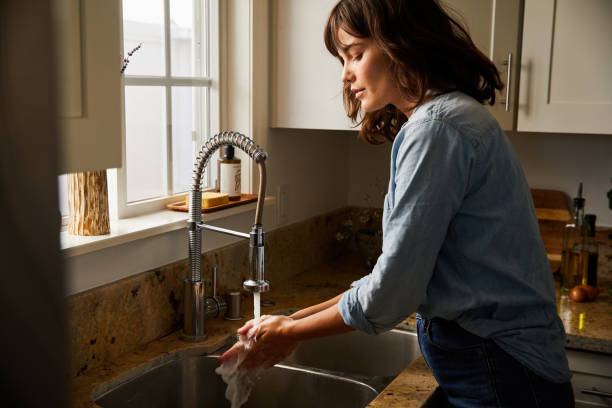Not long ago, a video circulated in a messaging group showing a woman during her bathing routine. While the clip raised questions about privacy, what stood out was the use of a large amount of soap on her private area. This sparked an important health conversation that many people, especially women, might not be fully aware of.
The issue isn’t just about what we see in the video — it’s about common practices that could unknowingly affect women’s health. One such practice is using regular bar or liquid soap on the sensitive external area of the body.
Understanding the Body’s Natural Balance
The external intimate area, often referred to as the vulva, is delicate and naturally protected by a specific pH environment. This slightly acidic pH helps maintain healthy skin and supports the body’s ability to prevent infections.
Unfortunately, many soaps, especially scented ones, are alkaline. Using them can disrupt this natural balance, leading to discomfort such as dryness, itching, or irritation. In some cases, it may even contribute to bacterial or yeast overgrowth, which can require medical attention.
The Body Has Its Own Way of Staying Clean
What many people don’t realize is that this part of the body is self-cleansing. This means the body naturally takes care of hygiene internally. In fact, medical professionals advise against using harsh soaps or inserting anything internally for cleaning purposes.
For external hygiene, plain warm water is generally enough. If you prefer to use a cleanser, look for a mild, fragrance-free product that is formulated for sensitive skin and approved by healthcare professionals.
Potential Effects of Using Harsh Products
Using strong soaps or body washes in sensitive areas can lead to:
Dryness and irritation
Burning sensations
Skin reactions or allergic rashes
Imbalance of natural bacteria
Increased risk of discomfort or infections
These issues are common but preventable with the right care.
Healthier Hygiene Practices
Here are safe and simple ways to maintain cleanliness and comfort:
Use only warm water or a gentle cleanser for the external area
Avoid scented or antibacterial soaps in sensitive regions
Never use douches or harsh products internally
Wear breathable cotton underwear
Maintain personal hygiene during menstruation
Consult a healthcare provider if you notice unusual irritation or discharge
Final Thoughts
Personal hygiene is important, but so is understanding what your body actually needs. With so many products marketed toward women, it's easy to assume more is better — but when it comes to intimate care, less is often safer.
Always follow medically sound advice, and when in doubt, speak to a healthcare professional. Taking simple, informed steps can go a long way in supporting your health and comfort.



Reader Responses (0)